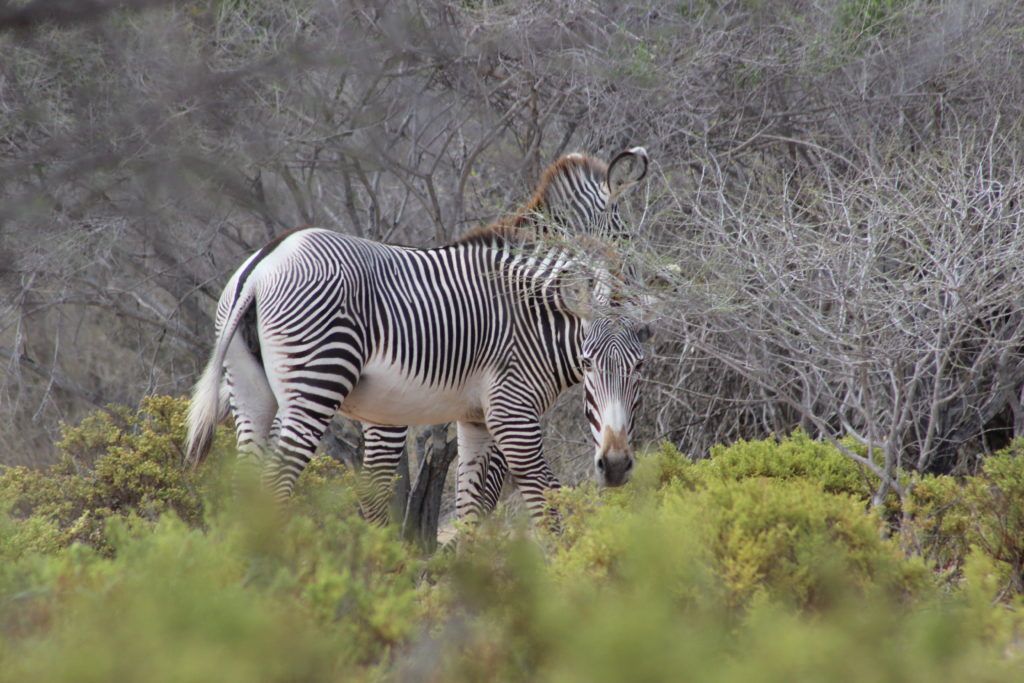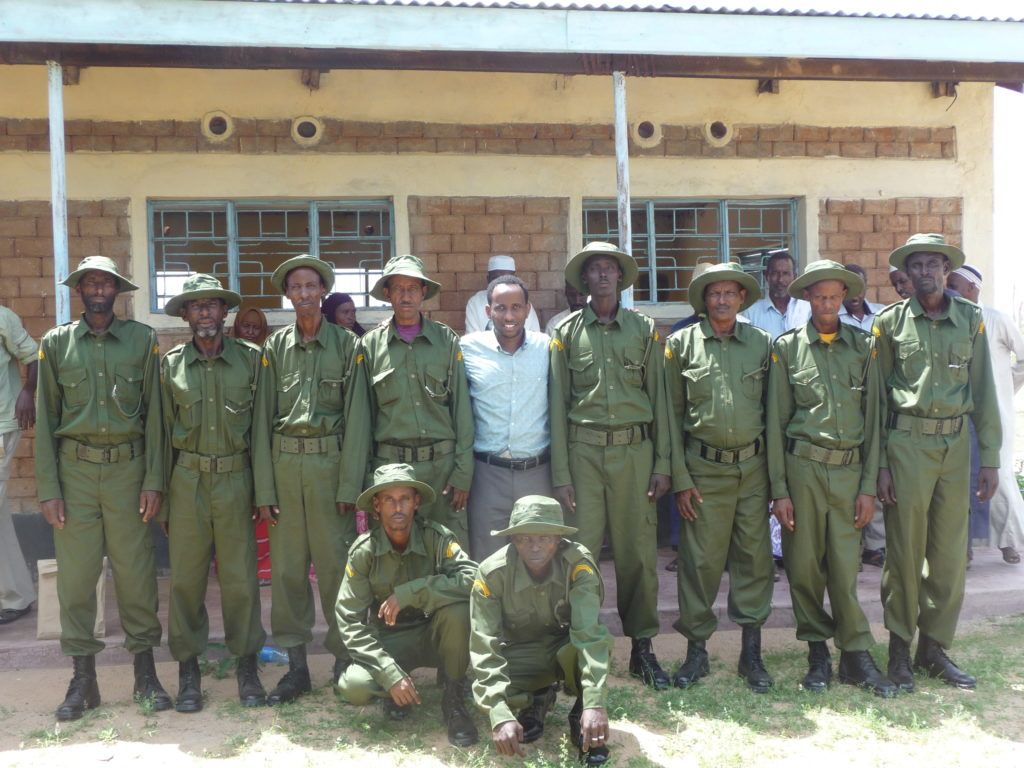North-eastern Kenya continues to experience its worst drought in 40 years
In Garissa County, East Kenya, our colleague Dr Abdullahi Ali Hussein is fighting against the effects of the drought. Many wild animals, especially those dependent on grass, are dying due to the severely dry conditions. Giraffes, hirola antelope, desert warthogs, Beisa oryx, Grevy’s zebras, buffalo and coastal topi are all badly affected. They’re having to travel much further to find water and the vegetation is poor. Shortages of food and water mean they’re much more susceptible to malnutrition and disease.
Livestock are suffering too, forcing locals to venture into areas normally left for wildlife to find enough pasture for their animals to survive, putting even more pressure on wild animals. And sadly, poaching is increasing as local people have to find their own ways to survive the drought themselves. Poachers trade bushmeat with locals for items like sugar and powdered milk, to sell in neighbouring Somalia. The situation’s extremely fragile and volatile – for wildlife, livestock and all the people living in the region.
Emergency funding has been vital in the past
In 2021 and 2022 we helped Ali with emergency funding to combat the effects of the drought. With this funding from PTES, Ali and his team have:
Increased the availability and access to water for wildlife, livestock and locals. By renting two water trucks, Ali’s team brought water to residential and wildlife areas twice a week, providing over 2,000,000 litres of water so far. They’ve also constructed 11 new water pans and repaired another 16.
Provided high quality feeds to key wildlife species and livestock. The team supplied hay and acacia pods twice a week to areas with hirola antelope, Somali giraffe and Grevy’s zebra. This has improved their body conditions and reduced susceptibility to diseases and death. Supplies of nutritious pellets to livestock has enhanced health and production, improving local livelihoods, and reducing the number of livestock encroaching into wildlife areas.
Opened wildlife water access corridors along the Tana River. Farms along the Tana River threaten the survival of wildlife during drought periods as the animals have limited access to the water, and they’re more likely to be trapped and injured by snares set to prevent them eating crops. With an urgent need to reopen access to the river for wildlife, Ali mapped out access points for wildlife along the Tana River in collaboration with the county government. He subsequently opened up 58 wildlife access corridors to increase access to water for wildlife.
Carried out a vaccination drive and treatment exercise. Ali’s team carried out a vaccination drive to prevent the spread of highly contagious diseases amongst livestock, which could spill over to wildlife. With mobile units they vaccinated an impressive 61,400 livestock in 30 days, and treated sick wildlife.
Conducted a seven-day joint force to halt an emerging cross border giraffe bushmeat trade. During the drought, the cross-border bushmeat trade increased, so Ali’s team joined forces with the Kenyan police and rangers to crack down on those involved. They established barricades on the major roads to inspect vehicles and multiple checkpoints on different days and roads. They arrested nine suspected poachers who were transporting game meat. And 30 community individuals and scouts across the region are now trained to monitor the bushmeat trade and its causes.
Thank you to everyone who helped by donating and helping us provide Ali with emergency funding.
Restoring habitat and working with communities to tackle the threats

We are also funding Ali to protect hirola antelope in this area of Kenya, on top of the emergency work he is doing to help them, and other grazing animals who are suffering in the drought. This project is focused on restoring their habitat – creating grassland areas and working with local communities to help tackle the threats they face. If you would like to support Ali with this vital work, we would be most grateful as the situation is so difficult right now. Thank you.
If you would like to contribute to help these animals you can do so here:


